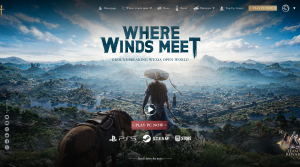DECISION MAKER BRIEFCourse Correction in Gaming & Entertainment Vol. 1 | Issue 6 | November 17, 2025
In the ever-evolving landscape of the gaming industry, where innovation and audience loyalty are paramount to survival, the question of whether Ubisoft is “dead” looms large amid its recent corporate turmoil. As of November 2025, the French video game giant has not yet met its demise, but it teeters on the brink of a profound transformation or potential collapse, evidenced by the abrupt postponement of its half-year financial results and the subsequent suspension of stock and bond trading on Euronext. This move, announced mere minutes before a scheduled earnings call, has fueled rampant speculation ranging from an imminent buyout—possibly by Tencent or other investors—to the company going private to shield itself from further market volatility. These financial woes are not isolated incidents but the culmination of years of strategic missteps, where senior leadership appears to have prioritized fleeting cultural trends over the timeless appeal of immersive, player-centric storytelling. The saga underscores a broader cautionary tale for executives: in an industry driven by passionate communities, alienating your core base in pursuit of a nebulous “modern audience” can erode not just market share, but the very foundation of brand trust.The path to Ubisoft’s current predicament traces back to a series of decisions that increasingly entangled game development with polarizing social and ideological elements, often at the expense of historical fidelity and gameplay integrity. A pivotal flashpoint has been Assassin’s Creed Shadows, set in feudal Japan, which drew intense scrutiny for featuring Yasuke—a historical African figure—as a playable protagonist alongside a fictional Japanese shinobi, Naoe. While Yasuke’s existence is documented, debates raged over his portrayal as a samurai, with critics arguing it veered into Afrocentric romanticism and ideological insertion rather than authentic representation. This choice puzzled many, as previous entries in the Assassin’s Creed series reserved playable roles for fictional assassins, integrating real historical figures like Leonardo da Vinci or Cleopatra as non-playable characters to maintain immersion without rewriting history. In contrast, Assassin’s Creed Origins successfully featured Bayek, an Egyptian protagonist in an African setting, enhancing authenticity without controversy because it aligned with the game’s context and avoided overt messaging. Shadows’ backlash escalated into organized boycotts and sustained social media campaigns, amplified by accusations of cultural appropriation, period-inaccurate elements like Chinese architecture, and heavy-handed themes around identity politics, trans rights, and racial dynamics—issues rooted in Western preoccupations that felt anachronistic in a 16th-century Japanese narrative. Ubisoft’s response, including delaying the game to March 2025 for further polishing, only intensified perceptions of reactive damage control, with developers reportedly seeking therapy amid the vitriol. This wasn’t an isolated misfire; the company also scrapped a post-Civil War Assassin’s Creed project fearing similar political backlash, illustrating a pattern of self-censorship driven by fear rather than creative conviction. Compounding these issues, Ubisoft’s broader portfolio suffered from repetitive open-world formulas, underwhelming titles like Star Wars Outlaws, and a reliance on live-service models that failed to captivate, all while internal memos and layoffs signaled deepening financial strain. For other developers and corporate leaders eyeing Ubisoft’s downfall as a roadmap to avoid, the lessons are stark and actionable: prioritize objective data over ideological echo chambers. Misreading fads—such as injecting partisan fringe issues into escapist entertainment—for enduring trends has proven disastrous, fostering not just apathy but active resistance from core players who form the backbone of sustained revenue. Conduct rigorous, unbiased polling and market research to gauge audience preferences, ensuring decisions are grounded in empirical insights rather than assumptions about a “diverse” player base that may not materialize at scale. Avoid antagonizing loyal fans by steering clear of immersion-breaking elements; instead, focus on crafting experiences that respect historical contexts and emphasize fun, replayability, and narrative coherence. Ubisoft’s pivot toward “winning the battle” against detractors by reframing Shadows as “more of a video game than a message” hints at a late recognition of this truth, but it may be too little, too late. Executives should foster internal cultures that value creative risk-taking without succumbing to external pressures, diversifying portfolios beyond flagship franchises while maintaining fiscal discipline to weather market downturns. Ultimately, in an industry where consumer choice reigns supreme, the key to longevity lies in delivering products that unite rather than divide, building goodwill that translates into loyalty and profits. Ubisoft’s saga serves as a reminder that when leadership formulates policy on poor-quality information or misinformation, the fallout can cascade from social media storms to boardroom crises, potentially sealing a company’s fate.
Support us on PatreonMichael Heising #DecisionMakerBrief #CourseCorrection2025 #MeritOverOptics #UE5 #GamingLeadership
|


